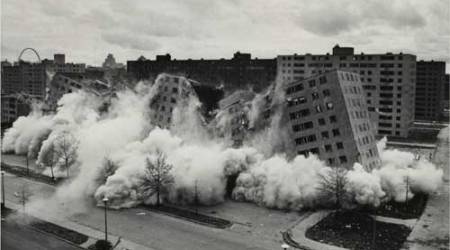
A couple of days ago, a friend commented that watching movies about architecture is like dancing about baseball. It's true that communicating in one artistic medium about another is inherently difficult; architecture poses special problems when it is reduced to a two-dimensional surface. I don't think there's any debate that too many (most) films about architecture and design are boring.
But certainly there are exceptions. Gary Hustwit's recent films on typography, industrial, and now urban design come immediately to mind, as does Nathaniel Kahn's film about his father, My Architect. A whole new set of candidates to this list are showing now at the Architecture and Design Film Festival, which opened last night with a film on Cuba's National Art Schools, and continues on through the end of the weekend at Tribeca Cinemas. (Disclosure: I'm doing some volunteer work for it.) Every film might not be a winner, but there are several entries that appear quite promising, including a few that don't quite follow the conventional form of the design film.
What is it that will separate the best of these films from the generic, hagiographic fare that has come to define this genre? For me, it's that they tell compelling human stories, even when their putative subject matter is the physical world. Based on previews and word-of-mouth, I'm interested to see Minka, for instance, a film about a Japanese farmhouse that is as much about the moving relationship of the men who restored it. Antwerp Central, ostensibly about that city's great rail station, seems as much to be a rumination on memory, experience, and history, inspired by W. G. Sebald's novel Austerlitz.
That essential focus on the human subject is, of course, also what makes for great architecture and design. As John Portman, the subject of one of the films, tells the New York Times today:
We should put human beings at the head of our thought process. You want to hopefully spark their enthusiasm. Like riding in a glass elevator: everyone talks on a glass elevator. You get on a closed-in elevator, everyone looks down at their shoes. A glass elevator lets people’s spirits expand. Architecture should be a symphony.
That's a good working principal, whatever one thinks of Portman and his architecture. To borrow his metaphor, a good film is like a glass elevator. Other films I'm looking forward to seeing take on Pruitt-Igoe, Victor Gruen, and Charles Correa. I hope you'll find some time to join me at the festival.
